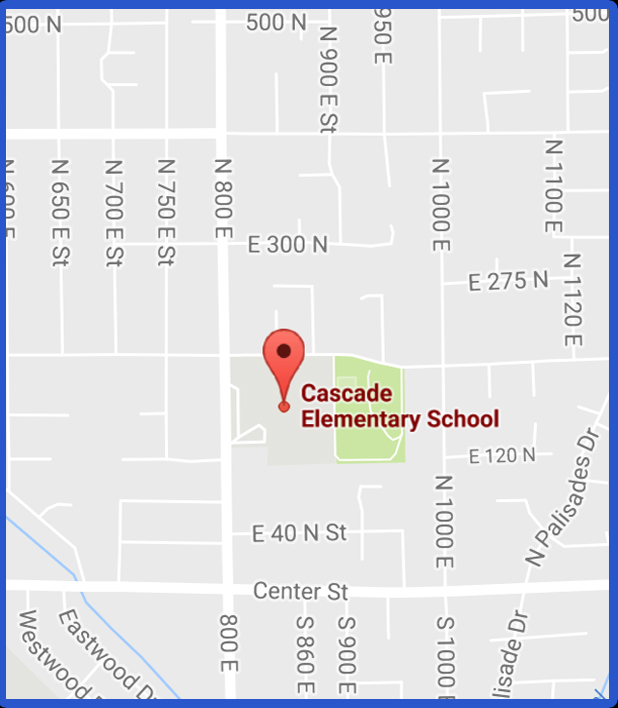Cascade SCC Minutes 3-16-2017
In Attendance:
Julie Walker
Jessica Nelson
Sara Mead
Doug Wyatt
Tracy Naval
Shelley Colton
Boyce Campbell
Discussion:
Mr. Campbell explained that along with the Core Standards, each grade’s teachers (as part of collaboration) picks out the “Essential Standards,” skills students MUST master each particular year. These are typically focused on during Target Time at Cascade.
The district is considering, and allowing the schools at their discretion at this point, altering the grading
system as follows:
Currently, K-3 have report cards that are skill-based (3-4 pages of individual skill mastery line items with points 1-4 given, or NE if the skill hasn’t yet been introduced/addressed). Grades 4-6 have letter-grade reporting: A,B,C,D and F.
The discussion was whether grades 4-6 should change the reporting system to an essential skill-based report for the parents rather than the letter grades, and should this become a district-wide way of reporting? The district is asking for feedback from the SCCs and Mr. Campbell will report our opinions
and concerns to the district.
The new reporting would not be the full 3-4 pages of skills we currently see with K-3. It is a front/back of one sheet that addresses just the Essential Skills for that grade level. (Chinese would be a separate sheet). This changes the focus to essential skill mastery rather than the letter grades that often aren’t a
true reflection of skill mastery.
With collaboration happening district wide, and the general focus changing to measurable reporting on knowledge and skills, along with training at Ron Clark academy for our teachers, this kind of skill-based reporting makes sense. There was general agreement of reporting in the higher grades with a focus on skill-mastery, with the following concerns discussed:
Julie Walker brought up one concern: Would this make it harder on the teachers? Specifically, teachers would have to know where each student stood, individually. Would this be a factor in making it more work for the teachers?
The teachers already know the skill-level for individual students and use this for Target Time. Sara Mead, a teacher, who worked previously at a school who utilized essential skill-based reporting said that what can make it harder is that Skyward’s reporting is not set up the same way as the skill-based reporting, so having to come up with ways to enter in grades, or having to do both letter-grade based and skill-based reporting can be frustrating from the teachers’ standpoints. Also, parents may get frustrated when they see no credit on Skyward for certain subjects because there won’t be a grade reported there until a final assessment. It would require parent/teacher communication and it would take time to help parents understand, a paradigm shift.
She also brought up the issue she has seen from experience that the essential skill-based reporting may not necessarily break their mastery into learning components, because it groups certain skills together in the reporting.
Some examples were given in the area of science. Mr. Campbell and the council looked at those areas. Effort is made to group together learning components where the mastery of one component naturally goes with the others. In other words, the students couldn’t really learn one without learning the other.
Charles brought up the concern that by sixth grade, he would like to see his children have the skills of achieving letter grades, of turning in assignments on time, organizing their time, preparing for exams, etc., in order to prepare for Jr. High. Everyone agreed that sixth grade is considered middle school and is a good time to be introduced to letter grades. Also, in order to apply for certain Jr. High honors classes, there are letter-grade requirements for sixth grade.
The questions were posed: could sixth grade teachers do BOTH kinds of reporting? Can Skyward be altered by the district so that it goes along more with the skill-based reporting?
Along with this discussion, the subject of Cascade having an inordinately high amount of homework came up. All the parents agreed to the tune of too much daily homework, and making it a pain for parents having to sign so much. Particularly second-grade seems to be a culprit of having even more homework than the upper grades. And all parents strongly agreed that the kids need to come home and just be kids, that homework should be largely limited to reading, and that the instruction and learning needs to take place during the hours they are at school.
Tracy Naval, a teacher, also strongly agreed with the need for less homework, and kids needing to just be kids. She affirmed that studies show that students do better in school and with learning when they can leave learning at school and go home and play.
Everyone agreed that reading should happen every day, but that other homework should be limited and
that there should be a school-wide homework policy to that effect.
Budget Proposal 2017-2018
Charles added up the proposed line items in a spreadsheet and they totaled closer to $80,000. This was approximately $12,000 over budget, with several line items being negotiable but hopeful. This gave the council an idea of what to cut from the negotiable items. It was decided that there would
be one new literacy aide hired, not two, cutting that line item from $10,000 to $5,000. Also, because the council feels that Summer Collaboration and Professional Development are similar, and there is already so much in Summer Collaberation, Professional Development would be cut completely for now, and then when we know the actual allocation amount, which is usually higher, we will put the extra, or slush-fund amount toward Professional Development, as we have in the past, and get what we can out of it.
That put the total of the line items to $69,140, close enough to the estimate that we can bridge the gap when we know final numbers.
Motion to adjourn. Adjourned.
